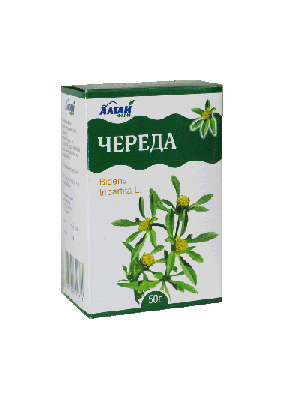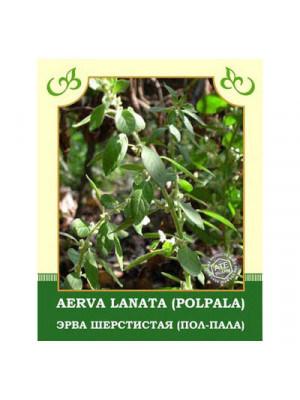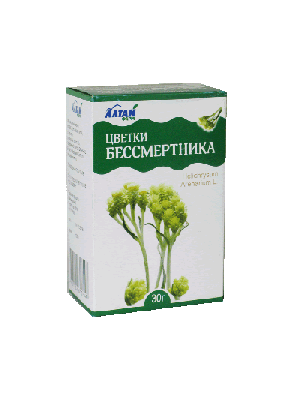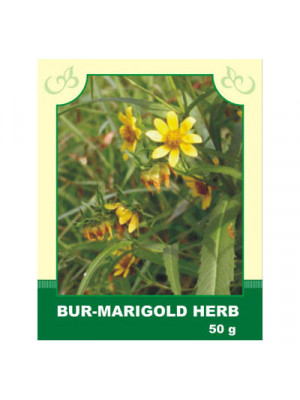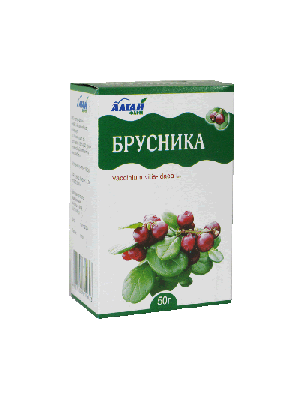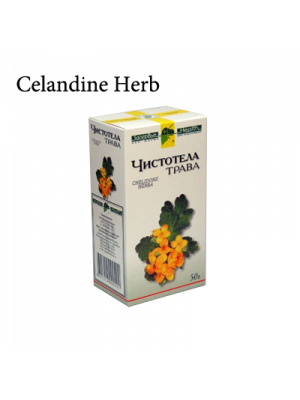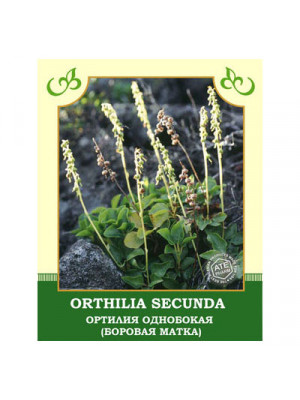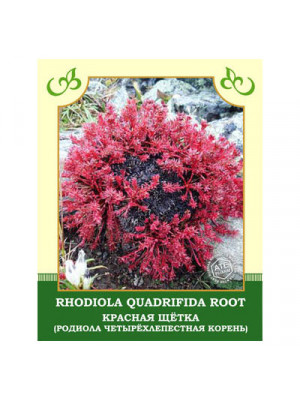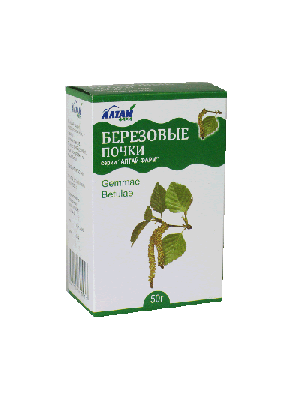Herbs
Internal use: Enhances appetite, strengthens and improves digestion, corrects metabolism in skin diseases, increases urine and sweat secretion, stops bleeding, has a calming effect on the nervous system, slightly reduces blood pressure, increases the amplitude of heart contractions, and has a mild softening and anti-inflammatory effect. Used to stimulate appetite, improve digestion, and for colds, coughs, liver and spleen diseases, gout, arthritis, and rickets.
Method of application and dosage: Pour 15 g of the herb with 400 ml of boiling water, infuse for 30 minutes, and drink 1/2 glass 3-4 times a day before meals.
External use: Applied in the form of baths, lotions, and compresses. It promotes drying of the affected area of the body and rapid epithelization of the skin. The infusion is useful for washing the head affected by seborrhea. For baths, pour 30 g of the herb with 1 liter of boiling water, strain, and add to the bath. For lotions and compresses, boil 3 tablespoons of the herb in 400 ml of water for 10 minutes, strain, and use as directed.
Contraindications: Individual intolerance.
$6.99Folk beliefs attribute unique abilities to common yarrow, such as preventing the formation of blood clots in vessels and reducing blood clotting.
Internally, it is taken as a remedy for bronchitis, tracheitis, common colds, reducing inflammation, clearing the respiratory tract from toxins and mucus, and for diseases of the urogenital system and reproductive organs. It normalizes the functioning of the gastrointestinal tract, liver, and pancreas. There is evidence of high effectiveness in cases of intestinal polyps and hemorrhoids, as well as for relieving constipation.
Method of application and dosage: Place 2 teaspoons of crushed herb in a teapot, pour 250 ml of water, boil for 3-5 minutes, and let it steep for a short while. Consume by adding sugar or honey to taste.
Contraindications: Individual intolerance; during intake, it is advisable to exclude spicy and salty foods, as well as alcohol from the diet.
$6.99Internally, it is taken as a cholagogue for liver diseases, cholecystitis, hepatobiliary disease, gallstone disease; for stomach disorders, kidney and bladder diseases, especially in acute cystitis, in difficult and painful urination; as a hemostatic for uterine bleeding due to ovarian dysfunction and uterine fibroids; for furunculosis.
Method of application and dosage: 10 g of immortelle flowers are poured with 250 ml of boiling water. Infuse for 20 minutes, strain. Bring the obtained infusion to the original volume. Take 1/2 cup 2-3 times a day before meals.
Contraindications: Individual intolerance, jaundice, hypertension. Consult with a specialist before use.
$6.99
Description.
Description. Bur-marigold is widely used in different ways. The herb is rich in tannins, bitters, volatile oil, vitamin C, carotin, iron, chrome, aluminum, copper and manganese. Bur- marigold can be taken internally and externally. The properties of the herb are numerous: sudorific, anti-inflammatory, diuretic, vitaminous, anti-allergic and sedative. Bur-marigold is of great help for metabolism disorders, digestion, gastrointestinal illnesses and skin inflammations. Use. Bur-marigold is used as preventive for influenza or cold, used for treatment of swelling pain at the throat, fever among infants, fear of cold weather. In some countries they use it for enteritis, flatulence, diarrhea, appendicitis, for sprains, contusions, chronic ulcers. The herb also helps stop wound bleeding and is good for piles, chronic ulcers, various skin diseases.
Attention! Before using any herbal products, make sure that you have full knowledge of how the herb works and any adverse reaction it may cause.$6.99- Broth or water infusion of leaves used as a diuretic, choleretic and antiseptic treatment of inflammatory diseases of the kidneys and bladder, urolithiasis, gout, less as a binder for non-infectious diarrhea nature.$6.99
Internal use: Tansy treats hypertension, asthma, anemia, atherosclerosis, food poisoning, flu, soft tumors (fibroids), polyps in the colon, hemorrhoids, gastritis, goiter, gout, rheumatism, ulcers of the gastrointestinal tract, liver, gall bladder, kidneys, and heart muscle.
Application and dosage: Place fresh herb in a 500 g jar, filling half of the volume. Pour boiling water, cover with a lid. (For an infusion of dry herb, fill 1/4 of the jar). After cooling, drink twice a day, 100 ml each time, 10-15 minutes before meals. The infusion color is dark, and the taste is bitter.
External use: Infusions of the herb and root are used for baths, washes, and compresses for various skin conditions (rashes, lichen, boils), jaundice, purulent wounds, and ulcers. Infected, slow-healing ulcers and wounds are treated with a powder made from the leaves. Pour 30 g of raw material with 1 liter of boiling water, infuse for 3-4 hours, strain, and apply as directed.
Contraindications: Individual intolerance, epilepsy, angina pectoris, bronchial asthma, neurological diseases. A poisonous plant that requires caution in use.
$6.99
Description. Orthilia Secunda is native for Siberia. This herb consists of tannins, flavonoids, gums, bitters, lemon and tartaric acids, arbutin and saponin. Orthilia Secunda is recommended by herbalists as an herb for gynecological disorders and inflammations. Orthilia Secunda preparations are used for sterility, bleedings, infantilism, cervical erosion, for menstrual cycle derangements, toxicosis. In some countries Orthilia Secunda is used as diuretics and antiseptics for kidney and urinary bladder inflammations. More than that, the decoction of Orthilia Secunda is used as an eye wash.
Attention! Before using any herbal products, make sure that you have full knowledge of how the herb works and any adverse reaction it may cause.$8.99Internally, it is used for diseases of the digestive system, kidney diseases, bladder diseases, nocturnal enuresis, respiratory diseases, flu, weakness of the heart, pulmonary tuberculosis, oncological diseases, headaches, nervous diseases, as well as for roundworms.
Method of application and dosage: 20 g of the herb is poured with 400 ml of boiling water and boiled on low heat until half, strained, and the remaining plant material is squeezed. The obtained infusion is brought to the original volume with boiling water. Take 1 tablespoon internally 3 times a day after meals.
Externally, children with diatheses are washed with an infusion of St. John's wort herb, compresses are applied for rashes and boils, and for diseases of the mammary glands. For external use, 2 tablespoons of raw material are poured with 200 ml of boiling water, infused until cooled. For douching, it is diluted with warm boiled water at a ratio of 1:5.
Contraindications: individual intolerance.
$6.99Internally, it is taken for weakened potency, infertility (both male and female), sexual coldness, ovarian and testicular cysts, impotence, mastopathy, polycystic ovary syndrome, and fatigue. It improves mental and physical performance, recommended for oncological diseases, enhances blood composition, increases resistance to infectious diseases, and promotes rapid bone fusion in fractures.
Method of application and dosage: 1 tablespoon of crushed root is poured with 250 ml of boiling water. Heated in a water bath with a closed lid for 15 minutes, stirring frequently. Infused for 45 minutes at room temperature, strained. Bring the decoction to the original volume with boiled water and drink 3-4 times a day 30-40 minutes before meals with 1 tablespoon of natural honey. The course of treatment is 30-45 days. Store the decoction in the refrigerator for no more than 2 days.
Contraindications: individual intolerance, pregnant and lactating women, patients with hypertension, fever, mental excitement. Cannot be used in combination with hops and licorice.
$8.99- Birch Buds contain volatile oils, ascorbic acid, bitters, flavonoids, tannins, sugars. Decoction and infusion of birch buds are considered to have diuretic, antiseptic, anti-inflammatory, cholagogic and wound healing properties. Some medics observed great increase of urination under influencing of this decoction and substantial abatement of edemas even when other heart and the diuretics did not help.$9.99


